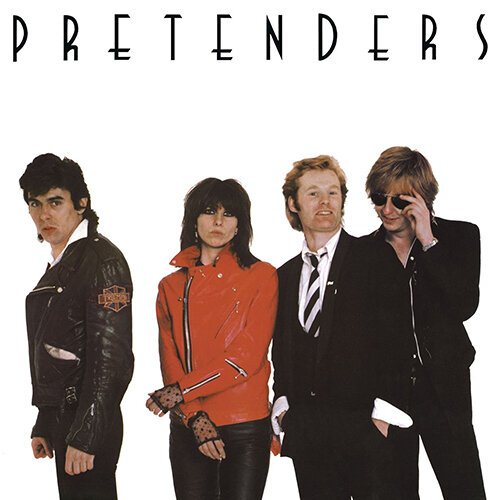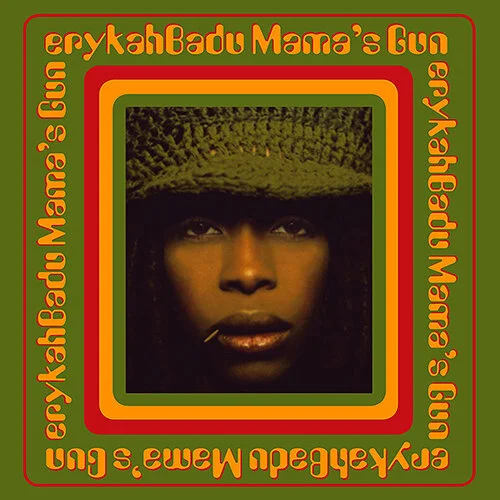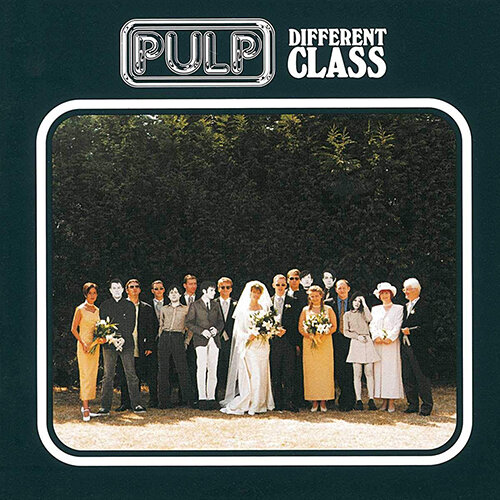#151 George Michael, 'Faith' (1987)
George Michael spent the early to mid-‘80s as the lead singer for UK pop duo, Wham! Despite selling more than 30 million records in a short space of time, Michael grew tired of the group not being taken seriously, generally being dismissed as just a teenybopper bubblegum pop group. Michael left the group and the following year released this, his debut solo album; adopting the persona of a more serious musician. Michael wrote and produced all the songs and played a lot of the instruments too. This was a definite statement.
#152 The Pretenders, 'Pretenders' (1980)
Last time I remember being surprised at this record. I knew The Pretenders for their radio hits, and so to hear the record open with the Punk song, ‘Precious’ is a shock to the system (in the best possible way); “But not me, baby, I'm too precious/Fuck off!” That’s set the tone! Next track, ‘The Phone Call’ follows a similar vibe. Loud guitars and Chrissie Hynde’s commanding presence. She’s such a great frontwoman.
#153 PJ Harvey, 'Rid of Me' (1993)
Polly Jean Harvey’s second album is raw and loud. It take 2 minutes and 11 seconds for the album to take flight. The loud-quiet structure of the title track is reminiscent of that made famous by Pixies on their debut album, ‘Surfer Rosa’ (#390). No surprises to discover then that this record was produced by Steve Albini, who produced that record as well as Nirvana’s ‘In Utero’ (#173).
#154 Aretha Franklin, 'Amazing Grace' (1972)
This list is full of twists and turns. I didn’t expect to be listening to an hour and a half of Gospel music, but here we are. ‘Amazing Grace’ was recorded live in January 1972 at the New Temple Missionary Baptist Church in Los Angeles, with Reverend James Cleveland and the Southern California Community Choir performing alongside Aretha Franklin. Franklin’s voice will convert even the staunchest heathen into a believer.
#155 Jay-Z, 'The Black Album' (2003)
‘The Black Album’ is an incredible record. The album starts with ‘December 4th,’ an autobiographical track with narration by his mother, Gloria Carter; “Shawn Carter was born December 4th, weighing in at 10 pounds, 8 ounces. He was the last of my four children. The only one who didn't give me any pain when I gave birth to him. And that's how I knew that he was a special child.” The song talks about his days as a drug dealer and goes on to describe his rise as one of music’s biggest musicians.
#156 The Replacements, 'Let It Be' (1984)
Punk band, The Replacements, took a bit of a different direction on this album. Having grown tired of the loud, noisy punk songs they were known for, they decided to write an album of more considered, structured songs. This record was a coming of age, more mature songs dealing with themes of growing up, adolescence, rejection and general teenage awkwardness.
#157 Oasis, '(What's the Story) Morning Glory?' (1995)
One of the most important albums of the ‘90s and arguably the most important of the Britpop era. This album solidified the band as a cultural phenomenon building off of the major foundations laid by their record-breaking debut album. If that album, ‘Definitely Maybe (#217), was all about their dreams and aspirations about being Rock ‘n Roll Stars, this album was about living the lives of the Rock ‘n Roll Stars that they’d become.
#158 Erykah Badu, 'Mama's Gun' (2000)
‘Mama’s Gun’ was the second album by the Queen Of Neo Soul, Erykah Badu. The album follows the both the birth of her son, Seven, after which she took some time off to be a full time mother, and the breakdown of the relationship with his father, Andre Benjamin (AKA Andre 3000 from Outkast). Outkast would famously release the single, ‘Ms. Jackson,’ based on their breakup. The album was recorded at Electric Lady Studios, Jimi Hendrix’s studio in New York City and was recorded almost back-to-back with D’Angelo’s ‘Voodoo,’ featuring many of the same musicians.
#159 The Police, 'Synchronicity' (1983)
A band that opted to bow out when they were on top, this album was their most successful of their career, including the hits ‘Every Breath You Take,’ ‘King Of Pain,’ ‘Wrapped Around Your Finger’ and ‘Synchronicity II.’ The album would be nominated for 5 Grammys, taking home 3 of them.
#160 Pearl Jam, 'Ten' (1991)
‘Ten,’ Pearl Jam’s debut record, is my favourite album of theirs. Following the death of Mother Love Bone lead vocalist, Andrew Wood, Jeff Ament and Stone Gossard joined up with guitarist, Mike McCready. The trio recorded a 5-track demo with Soundgarden drummer, Matt Cameron, which was then used to shop around for vocalists. Eddie Vedder received the demo via Red Hot Chili Peppers drummer, Jack Irons. Following a surf, Vedder would record vocals on the demo, which he then sent back to the band.
#161 Crosby, Stills & Nash, 'Crosby, Stills & Nash' (1969)
The debut album by one of music’s first supergroups, Crosby, Stills & Nash was the perfect blend of David Crosby’s social conscience, Stephen Stills’s virtuoso musicianship and Graham Nash’s ability to craft the perfect pop melody for radio. The band was brought together after Crosby was fired from The Byrds, Stills’s band, Buffalo Springfield had broken up (a band which also featured later member, Neil Young) and Nash’s departure from The Hollies. The three decided to form a band after an informal jam led them to discover how well their voices harmonized.
#162 Pulp, 'Different Class' (1995)
Led by enigmatic frontman, Jarvis Cocker, Pulp’s 5th album, ‘Different Class,’ was a major career breakthrough for Pulp. Released at the height of the Britpop era, the album explores themes of social class and sex. The album title was had a double meaning; the first to mean that the band was in a class of their own, but the second, playing on the British class system, a subject explored in the single ‘Common People.’
#163 Various Artists, 'Saturday Night Fever' (1977)
The Bee Gees were not involved in ‘Saturday Night Fever’ until after the film had been filmed. Travolta was dancing to Boz Scaggs and Stevie Wonder. Scaggs’s label decided not to clear his song, ‘Lowdown’ for the film, leaving producers to find new music. The producer approached The Bee Gees who would write all the music for the film in a weekend. Can you imagine the iconic strut at the beginning of the film without the classic line “Well, you can tell by the way I use my walk I'm a woman's man, no time to talk.” Impossible to fathom.
#164 Johnny Cash, 'At Folsom Prison' (1968)
“Hello, I’m Johnny Cash.” One of the most iconic introductions in recorded music history goes straight into the hit single and album namesake, ‘Folsom Prison Blues.’ Cash, although having been arrested 7 times for misdemeanours, had never actually served a prison sentence. He wrote this song in 1955 after seeing the documentary, ‘Inside The Walls Of Folsom Prison,’ with his unit while serving in the US Air Force. It was his perceived idea of life in prison. The song was top 5 on its original release. The song was popular with inmates who would write to Cash asking him to perform at their prisons.
#165 R.E.M., 'Murmur' (1983)
‘Murmur’ was the debut album of R.E.M., one of alternative music’s biggest artists of the ‘90s. The music was new and unique sounding. The guitars bright and jangly, Michael Stipe’s voice different to everything else around at the time. Peter Buck initially met Stipe in a record store in which he worked. They bonded over a shared taste in music and would soon after meet Billy Berry and Mike Mills, all of whom were students at the University of Georgia. The latter two had been playing music together since high school.
#166 Buddy Holly, '20 Golden Greats: Buddy Holly Lives' (1978)
Buddy Holly didn’t invent Rock ‘n Roll. Artists like Sister Rosetta Tharpe, Little Richard and Chuck Berry lay claim to that, but he certainly popularised it. After opening for Elvis Presley in 1955, he decided to seriously pursue his career in Rock ‘n Roll. Later that year, while opening for Bill Haley & His Comets, he was spotted by a scout, which jumpstarted his career. In under two years, Holly would write and record songs that would go on to have a major impact on music, ultimately changing its course.
#167 Depeche Mode, 'Violator' (1990)
On their seventh record, Depeche Mode had well and truly embraced a darker, more brooding sound. The band tried a different approach on this one. Whereas previously they had done extensive pre-production work, on this record, the demos were sparse and the band would work more collaboratively, all chipping in with ideas at the beginning of a track. Super producer, Flood, would tie it all together.
#168 Steely Dan, 'Can’t Buy a Thrill' (1972)
The result was this, their debut record, a collection of some of the best Jazz/Rock songs. Really well written and performed by an incredibly tight band. Fagen would handle solo vocal duties on 4 of the tracks and share vocals with Palmer on 3 of them, while Palmer took the lead on 2 tracks. Drummer, Jim Hodder sang on ‘Midnight Cruiser.’
#169 Billy Joel, 'The Stranger' (1977)
The album spawned 4 Top 40 hits and charted at #2 in the US, Australia and Canada, ultimately saving Billy Joel’s career. The highest charting of those songs (#3) was ‘Just The Way You Are,’ a song written for his first wife, Elizabeth Weber. Joel and his band actually didn’t like the song, but was convinced by Linda Ronstadt to include it on the album.
#170 Cream, 'Disraeli Gears' (1967)
Cream’s second album was a departure from their Blues-Rock sound and saw the band exploring more Psychedelic sounds. Clapton emerged as a more confident vocalist than he’d ever been, sharing lead with Jack Bruce on 3 of the 11 songs, and singing solo on 2 more. The final track on the album features all three members on vocals, meaning that Clapton sang on more than half of the record. This is in stark contrast to the band’s debut album, on which he only sang 1 song.



















